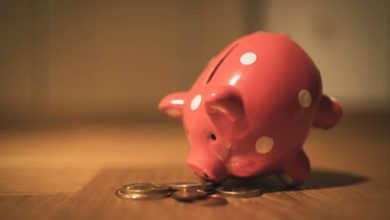Bouncing Back from a Financial Setback: Strategies for Recovery

Financial setbacks can strike anyone, and when they do, it can feel like you’re facing an insurmountable mountain of challenges. However, with the right strategies and a positive mindset, you can overcome these setbacks and regain your financial stability. This article will explore some effective ways to bounce back from a financial setback and offer insights into how direct lender payday loans can fit into a larger recovery plan when used responsibly.
Understanding the Impact of Financial Setbacks
The stress, anxiety, and uncertainty that come with financial difficulties can take a significant toll on your mental and physical well-being. Recognizing these challenges is the first step toward recovery.
Create a Realistic Budget
One of the most critical steps in recovering from a financial setback is to establish a realistic budget. Examine your income and expenses to determine where you can save money. Prioritize necessary expenses like housing, utilities, groceries, and transportation. Cutting out non-essential spending can free up resources to help you get back on track.
Emergency Fund and Savings
Financial experts often recommend having an emergency fund to cover unexpected expenses. While it may be challenging to start saving after a setback, even a small emergency fund can provide a safety net during tough times. Set a specific savings goal and work towards it gradually. Over time, having this financial cushion will provide peace of mind and security.
Seek Professional Guidance
If your financial setback is particularly severe or complex, don’t hesitate to seek professional advice. Financial advisors or credit counselors can offer valuable insights into your specific situation and help you create a personalized recovery plan. They can provide expert guidance on managing debt, improving credit scores, and building a more secure financial future.
Debt Management and Consolidation
Dealing with existing debt is a crucial aspect of financial recovery. Consider exploring debt management strategies, such as debt consolidation. This involves consolidating several debts into a single, more manageable payment with a lower interest rate. It simplifies your financial obligations and can make it easier to repay what you owe.
Explore Additional Income Sources
Increasing your income, even temporarily, can significantly accelerate your recovery. Look for ways to make extra money, such as part-time jobs, freelancing, or selling unused items. Every additional dollar you earn can be put towards repaying debts or building your emergency fund.
Save for the Future
Once you’ve recovered from your setback, it’s essential to start planning for the future. Saving for retirement, investing wisely, and building long-term financial security should be ongoing priorities. Setting achievable financial goals will help you stay motivated and on track.
The Role of Direct Lender Payday Loans in Recovery
Direct lender payday loans can be a helpful tool in your financial recovery journey, but they should be used cautiously and responsibly. These short-term loans can provide immediate relief when you’re facing unexpected expenses or cash flow problems.
When you’re dealing with a financial emergency, such as a medical bill or a car repair, these loans can offer a quick solution. They provide access to funds within a short period, allowing you to address pressing financial needs promptly.
It’s crucial to use payday loans responsibly. Only borrow what you need and can comfortably repay with your next paycheck. Avoid rolling over loans or taking out multiple payday loans simultaneously.
Stay Committed to Recovery
Recovering from a financial setback is not always a linear process, and setbacks may occur along the way. It’s essential to stay committed to your recovery plan, adapt as needed, and remain patient and persistent. Celebrate small victories, and remember that financial recovery is a journey that requires dedication and resilience.
Final Thoughts
Facing a financial setback can be a challenging and stressful experience, but it’s important to remember that you have the power to bounce back. By creating a realistic budget, building an emergency fund, seeking professional guidance, managing debt, and exploring additional income sources, you can take significant steps toward recovery. Stay focused, stay positive, and take control of your financial future.




